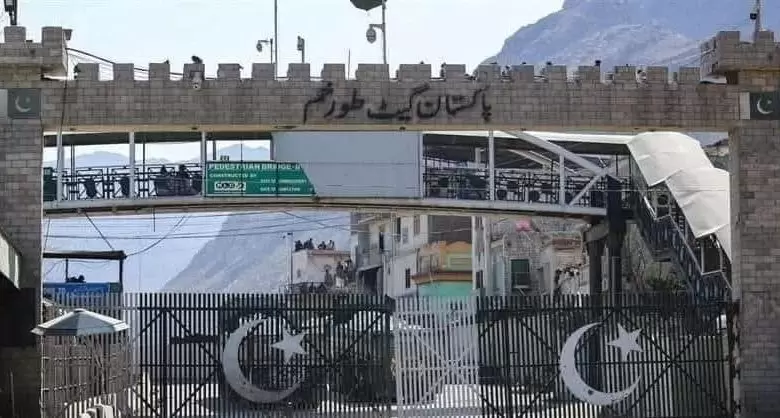Khyber Pakhtunkhwa (KP) Chief Minister Ali Amin Gandapur met with Afghan Consul General Hafiz Mohibullah Shakir on Sunday, emphasizing the urgent need to reopen the Torkham border, which has remained closed for the past eight days, ahead of Ramadan and Eid ul Fitr.
“The border must be reopened soon… The Afghan embassy should facilitate the process,” Gandapur stated during the meeting in Peshawar.
The closure resulted from tensions over an Afghan attempt to construct a bunker near Zero-Point, leading to a standoff between security forces. The situation has severely disrupted trade and movement between the two countries.
Security sources reported that Afghan forces attempted to build a bunker in a disputed area, prompting a response from Pakistan’s Frontier Corps (FC). Both sides reinforced their positions, and Pakistani authorities relocated customs, immigration, and police officials from Torkham Bazaar to Landikotal as a precautionary measure. The heightened tensions have raised concerns about the potential for an armed conflict.
On February 25, Pak-Afghan Joint Chamber of Commerce and Industry Senior Vice President Zia-ul-Haq Sarhadi stated that the closure had halted trade, affecting thousands of people on both sides. An estimated 2,500 trucks loaded with goods remain stranded on the Pakistani side, with an equal number stuck in Afghanistan, causing significant hardship for traders and daily wage earners.
During the meeting, discussions also covered bilateral trade and the challenges faced by Afghan citizens residing in KP.
Gandapur reiterated that regional stability is in the best interest of both Pakistan and Afghanistan. He noted that the KP government had formed a jirga to negotiate with Afghan authorities at the provincial level and was awaiting federal approval for its terms of reference.
Additionally, he revealed that talks were underway with international organizations to provide health and education cards to Afghan residents in the province.
Last month, Adviser to the KP CM Barrister Mohammad Ali Saif announced that the provincial government planned to send two delegations to Afghanistan for diplomatic talks. One delegation would focus on fostering a conducive environment for negotiations, while the second would include key stakeholders.
This development comes amid rising security concerns in Pakistan, which Islamabad attributes to militant groups operating from Afghanistan. Pakistan has consistently urged Afghan authorities to prevent their territory from being used by groups such as Tehreek-e-Taliban Pakistan (TTP) to launch attacks.
A report submitted to the United Nations Security Council (UNSC) by the Analytical Support and Sanctions Monitoring Team confirmed concerns over links between Kabul and the TTP, citing logistical, operational, and financial support provided to the group.
Pakistan and Afghanistan share a 2,500-kilometer porous border with multiple crossings vital for trade and cross-border movement. However, security concerns, particularly terrorism, remain a major issue for Pakistan, prompting calls for direct dialogue with Afghanistan.
In September 2024, Gandapur proposed direct negotiations with Afghan authorities to address terrorism-related concerns, a move supported by Pakistan Tehreek-e-Insaf (PTI) founder Imran Khan. However, the federal government strongly opposed the initiative, viewing it as a challenge to national policy.










